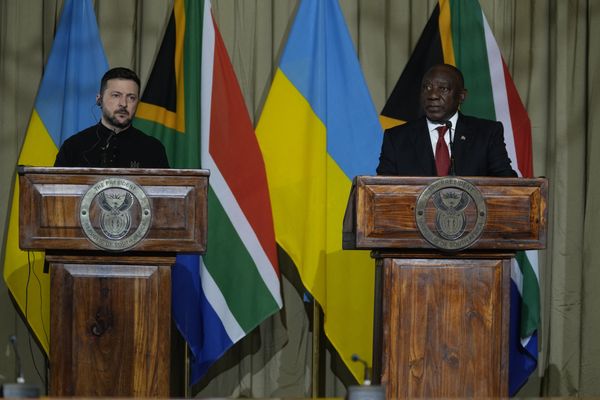A BBC journalist has called out an Israeli block on international journalists reporting from Gaza.
Reporting from Tel Aviv, Jeremy Bowen said he didn’t think Israel wanted “the outside world to see what they have done” given international journalists have been blocked for the past 15 months from reporting from Gaza.
International journalists are only allowed into Gaza if they are accompanied by the Israeli military. Palestinian journalists based in Gaza have therefore been relied upon to report on the ongoing war.
Bowen said: “One reason I’m standing here and not in Gaza is because the Israelis don’t let international journalists like myself in there to report freely. We rely on very brave Palestinian freelancers to help us out and do a lot of work for us. I think the Israelis don’t really want the outside world to see what they have done which is why, for over 15 months, they haven’t let us in.”
Bowen points out Israel has blocked intl journalists from Gaza & he pays tribute to the Palestinian journalists there This should have been the bare min from western journalists. Shamefully far too many stayed silent. I expect some will be trying to rewrite their record now pic.twitter.com/i5mNeYBwZC
— Saul Staniforth (@SaulStaniforth) January 20, 2025
A ceasefire agreement came into effect on Sunday, making the end of a 15-month conflict following the October 7 attacks in 2023.
At the start of last year, Israel’s Supreme Court rejected an appeal by the Foreign Press Association requesting foreign media access into Gaza over “security concerns”.
The National Union of Journalists joined the International Federation of Journalists (IFJ) in condemning the ruling, noting its significant harm on press freedom.
The IFJ highlighted Israel’s ban as one that “deprives the public of its right to freedom of expression, which includes the right to receive and impart information without interference by public authority and regardless of frontiers.”
Bowen has previously said that from a production point of view, covering news from Gaza feels like “climbing through mud trying to generate the material that’s necessary to put together a report for television news”.
In February last year, more than 50 journalists sent an open letter calling on Israel and Egypt to provide "free and unfettered access to Gaza for all foreign media", which Bowen signed along with the BBC’s Lyse Doucet and Mishal Husain.
Earlier this month, journalists gathered at Gaza’s Al-Aqsa Martyrs’ Hospital to express outrage and confusion about the Palestinian Authority’s (PA) decision to shut down Al Jazeera’s office in the occupied West Bank.
The PA temporarily suspended Al Jazeera in the occupied West Bank for what they described as broadcasting “inciting material and reports that were deceiving and stirring strife” in the country.
The decision came after Fatah, the Palestinian faction which dominates the PA, banned Al Jazeera from reporting from the governorates of Jenin, Tubas and Qalqilya in the occupied West Bank, citing its coverage of clashes between the Palestinian security forces and Palestinian armed groups in the area.
Al Jazeera criticised the PA ban, saying the move is “in line with the [Israeli] occupation’s actions against its staff”.
The National reported earlier this month that more than 120 journalists and media workers were killed last year and more than half of them were Palestinian.
The International Federation of Journalists published an annual “Killed List” – with 122 journalists reportedly killed in 2024, just below the 129 killings of media professionals in 2023 – which was among the worst for journalists since 1990.
As many as 64 of the journalists that were killed were Palestinian, the majority bombed by Israel amid its brutal war on Gaza.
This included the killing of five journalists in central Gaza just after Christmas who were hit by an Israeli air strike whilst working for the satellite channel Al-Quds Today.







